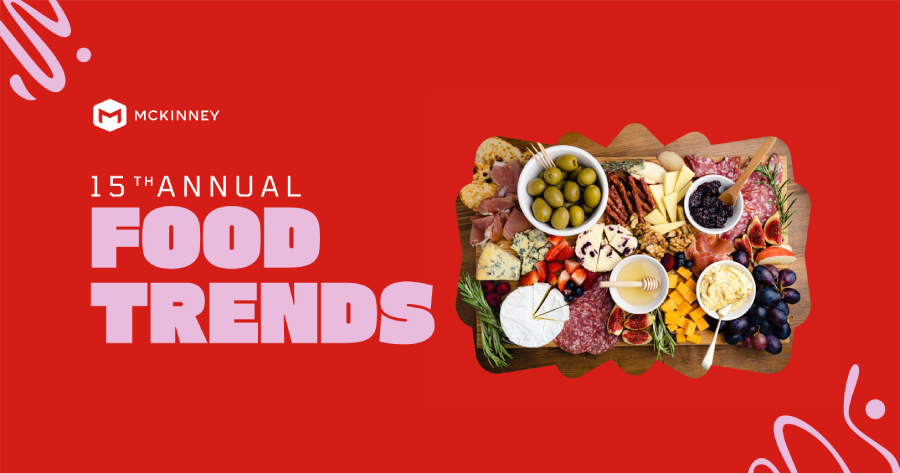McKinney Unveils 15th Annual Food and Beverage Trends Report

Creative, media, and influencer agency McKinney has released its 15th Annual Food and Beverage Trends Report, highlighting the theme of “Vibe Whiplash.” This theme reflects the intense cognitive dissonance Americans experience as they navigate contradictory forces in their daily lives. The report delves into trends in Culture, Wellness, Technology, and Social Responsibility that influence current food preferences and consumer behaviors. Although these trends were identified in the United States, they may also be relevant in other parts of the world.
Jasmine Dadlani, Chief Strategy Officer at McKinney, commented, “‘Vibe Whiplash’ captures the conflicting emotions consumers face daily and their impact on decision-making. Despite a looming global recession and record inflation, 40% of Americans plan to splurge in the next three months, and 87% intend to take a vacation within the next year. Analyzing this cognitive dissonance and its resultant food trends has been intriguing.”
The Annual F&B Trends Report, initially a collaboration with the Institute of Culinary Education, now includes contributions from NYU and Columbia University. Since 2009, McKinney has published these reports, which have influenced educational curricula and guided client strategies.
Don’t miss out! Subscribe to our newsletter for the latest content straight to your inbox, or register for FREE to gain full access.
Key Trends to Watch
Culture
The 2024 food landscape features “NSFW” and “Absurdist Food” trends. TikTok’s “thirst trap chefs” are popularizing provocative food presentations and techniques, generating outrageous and “sexy” content. Concurrently, solo dining is gaining acceptance, with a 260% increase in Google searches since 2019. Trends such as “#Carmukbang,” where individuals eat various foods in their cars, are educating viewers about regional specialties and gourmet locations.
Technology
Technological innovations are transforming food operations, aiming for “Zero Human Error.” Automated kitchen gadgets are streamlining cooking processes, while AI tools are revolutionizing farming by reducing labor-intensive tasks and enhancing crop yields. Examples include Farm-ng’s robotic micro-tractor.
Social Responsibility
Sustainable food consumption is encouraging some consumers to embrace insect cuisine, featuring international dishes like chicatana sauce in Oaxacan restaurants and Tagame Cider in Japan. In the U.S., insect-based food companies like Hey Planet are gaining traction. To address the rising cost of living, French supermarket Carrefour is helping consumers identify products affected by shrinkflation. Additionally, tech companies like PreciTaste AI are cutting labor costs, reducing food waste, and increasing restaurant sales.
Wellness
The wellness sector is influenced by food-as-medicine advocates and brands offering longevity products and services, inspired by the “Blue Zone” phenomenon. Therapeutic practices such as art therapy, video games, and the “Bed Rotting” trend—a viral self-care method promoting rest—are gaining popularity in response to the fast-paced modern lifestyle. The pandemic has heightened focus on mental, gut, and hormonal health, leading to unconventional diets and lifestyle choices.


Responses